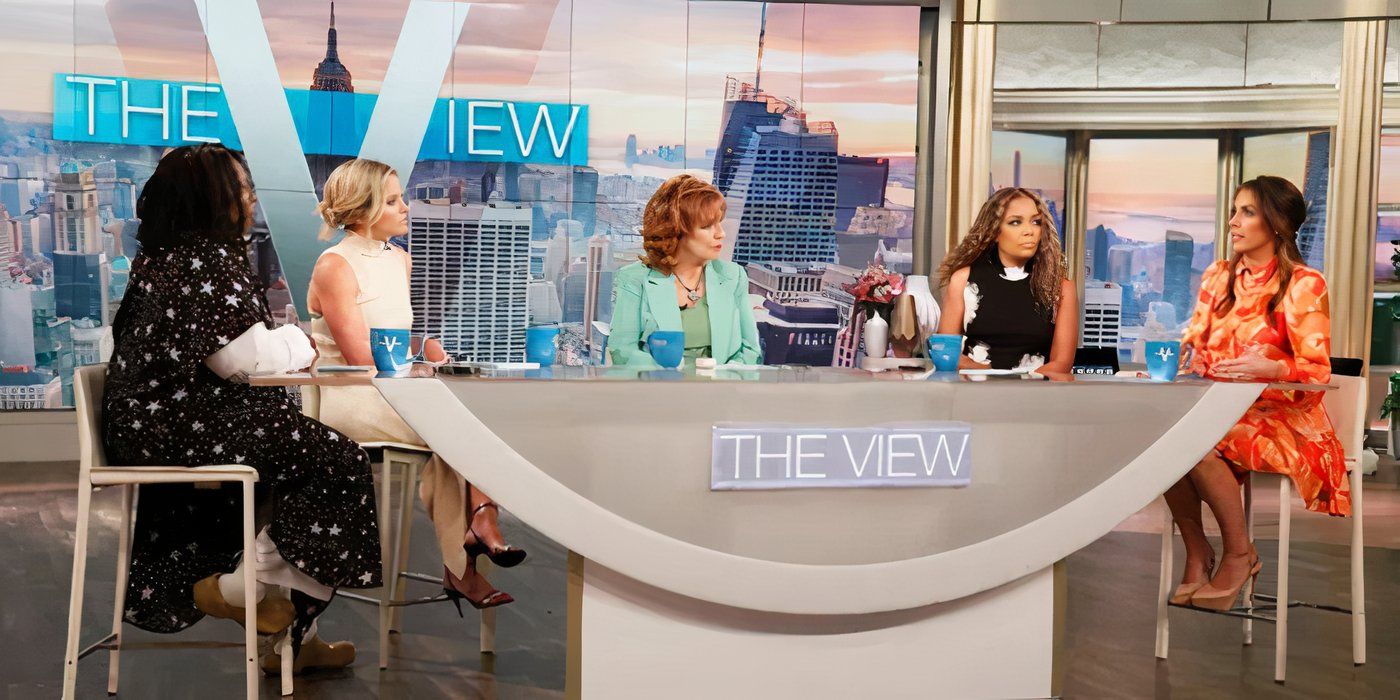In a shocking move that has sent waves through the media world, ABC’s CEO has officially announced the cancellation of the long-running daytime talk show The View. Citing poor ratings and increasing public backlash, the decision to cancel what many have labeled “television’s worst show” is a bold, yet strategic shift for the network.

The End of an Era
Since its debut in 1997, The View has been a fixture on American television. Hosted by a rotating panel of women from various backgrounds, the show was created by Barbara Walters to provide a platform for candid conversations about current events, pop culture, and social issues. However, in recent years, the show has become a lightning rod for controversy, often drawing criticism for its outspoken political commentary and heated discussions that sometimes verge on the chaotic.
ABC’s CEO, in a statement released earlier today, expressed that the time had come to move in a new direction. “After careful consideration and reflecting on the response from both our viewers and industry critics, we’ve concluded that it’s finally time to cancel The View. It’s clear that this show, once seen as a staple of daytime television, no longer aligns with the vision we have for ABC’s future,” the CEO said. “Television has evolved, and it’s time for us to evolve with it.”
A Show Riddled with Controversy
The View has been no stranger to controversy, often making headlines for its heated arguments and polarizing opinions. From clashes over political figures like Donald Trump to debates on social issues, the show has frequently attracted criticism for being too divisive. Some argue that the show’s tendency to prioritize drama over substance has alienated viewers and left the network with declining ratings.
In recent months, The View has faced a sharp drop in its audience. Many loyal viewers have expressed frustration over the show’s lack of balanced discourse, while others criticize the hosts for their increasingly partisan remarks. The network has struggled to maintain a stable viewer base, especially with the rise of alternative programming that appeals to a broader audience.

A Shift Towards the Future
ABC’s decision to cancel The View signals a significant shift in the network’s approach to daytime programming. With the current media landscape shifting towards more diverse, inclusive, and balanced content, the network is expected to replace The View with a show that appeals to a wider range of viewers and focuses on constructive conversations rather than controversy.
The CEO hinted at an exciting new project in the works, one that promises to bring a more positive and thought-provoking perspective to daytime television. “We’re thrilled about the future of daytime programming at ABC, and we are eager to introduce a fresh and forward-thinking format that can bring people together, rather than divide them.”
A Polarizing Legacy
While many will welcome the cancellation of The View, others will mourn the end of a show that, for better or worse, sparked important conversations about women’s roles in media and public life. Over the years, the show has provided a platform for powerful voices, from political figures to Hollywood stars, making it a crucial part of American pop culture.
Despite the controversies, The View will undoubtedly leave behind a polarizing legacy. For those who enjoyed the candid debates and strong opinions, its departure is bittersweet. For others, the end of The View is a sign that the era of sensationalized television may be coming to an end.

The Future of Daytime TV
As ABC moves on from The View, it is clear that the network is focused on reinventing daytime television for the modern era. The show’s cancellation could mark the beginning of a new wave of programming designed to unite viewers and foster more thoughtful, less contentious conversations.
While we may never know exactly what led to ABC’s decision, one thing is certain: the landscape of daytime television is changing, and The View’s cancellation is a pivotal moment in that transformation. As for what comes next, only time will tell – but one thing is for sure: the future of daytime TV is anything but predictable.